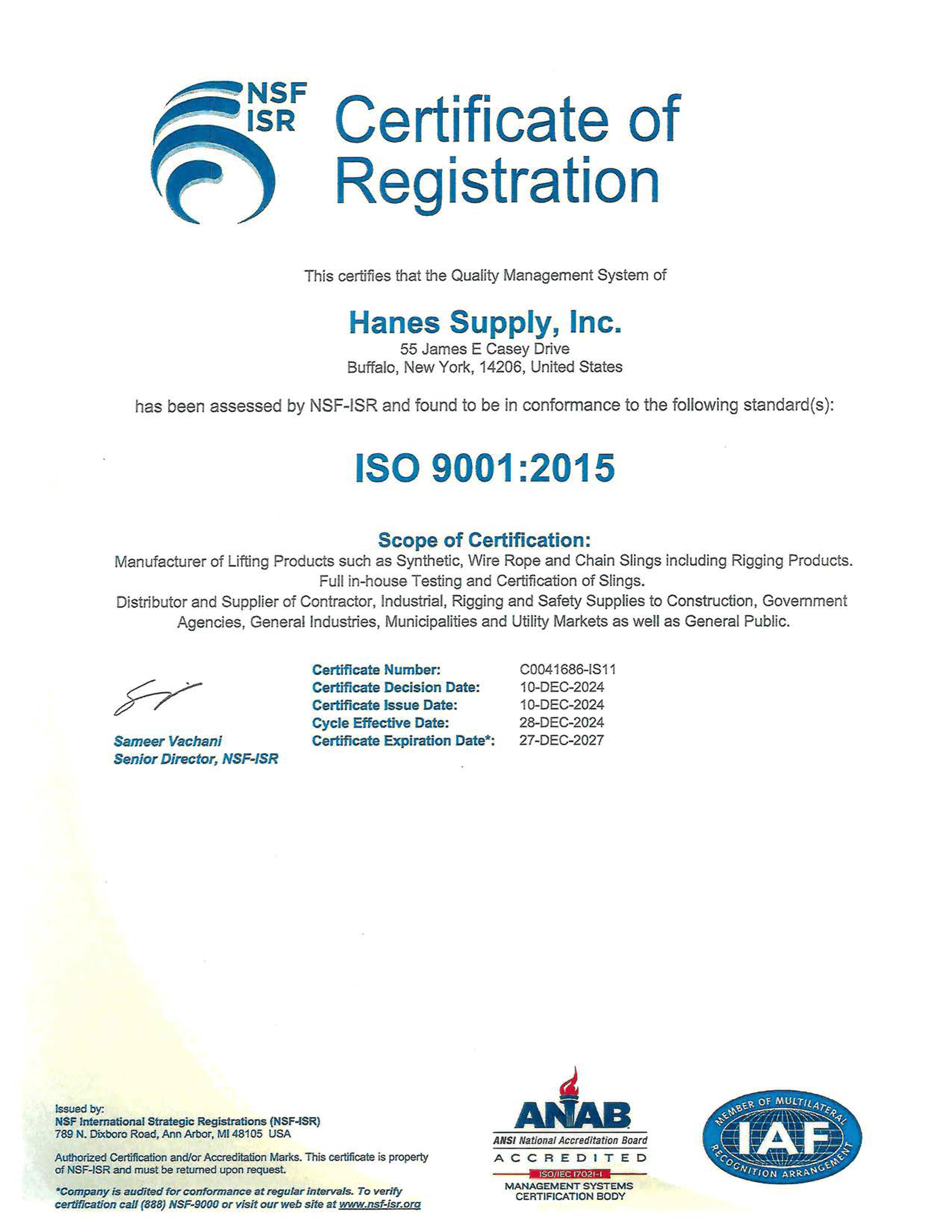ISO Registered Construction and Industrial Supplier
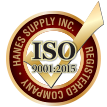
We are committed to improving our business by providing products and services that our customers value, creating systems and processes for major functions using risk based thinking to produce and deliver that value, and assuring that continuous improvement is our constant goal.
Our Headquarters is ISO 9001:2015 registered with a proven in-house quality management system. This ensures that we are constantly improving our processes in every aspect of our business from manufacturing to distribution. This ensures the highest of standards for our valued customers.
What is ISO?
ISO, or the International Organization for Standardization, is a non-governmental body consisting of more than 160 countries. They are responsible for developing standards for various industries, which promote quality, safety, and efficiency. Third party companies audit every year to determine if a manufacturer is living compliance with the standard before registration.
While no company is compelled to adhere to ISO standards, selecting a supplier who is ISO registered ensures that your supplier is managing their business using risk based thinking and consistent standards that reduce waste, risk, and costs while strengthening the quality of products and services.
Identifying and Reducing Operational Risks
- Hazard Risk – Risks related to accidental losses, such as workplace injuries, liability torts, property, damages and natural disasters.
- Product Realization Risk – Risks related to the design and implementation of products and processes such as customer satisfaction, product failure, process inefficiencies, etc.
- Compliance Risk – Risks related to violations of or nonconformance with laws, rules, regulations, prescribed practices, internal policies, and procedures or ethical standards.
- Operational Risk – Risks related to operations, such as supply chain, logistics or loss of key personnel.
- Strategic Risk – Risks related with an organization’s long-term goals and management, such as partnerships, mergers and acquisitions.
- Financial Risk – Risks related to financial activities such as pricing and liquidity.
- Reputational Risk – Risks related to the trust worthiness of business, damage to a firm’s reputation can result in lost revenue or destruction of shareholder value.
Benefits of ISO 9001 in Manufacturing
Conforming to the ISO 9001 standard has many benefits to the manufacturing industry. ISO 9001 helps inspire companies to find more effective ways to permanently resolve potential risks in use, quality and other cost-related problems while encouraging businesses to find creative ways to exceed customer-specified requirements. This standard helps businesses identify, document, and improve systems that address both written and “implied” customer requirements such as:
- Safety standards
- Environmentally-friendly manufacturing
- Expected production efficiencies
- Dimensional and functional specifications
ISO is an international body and as a result, its standards help ensure that products manufactured in different companies and/or countries manage their businesses in a way that promotes collaboration. This improves both national and international trade, while reducing costs and risk to all parties.
Since ISO standards mandate continuous improvement, ISO 9001 registered businesses tend to reduce overall errors which, in turn… eliminates waste. Companies that embrace ISO standards as part of their culture generally enjoy higher customer satisfaction, fewer errors, reduced costs, and a competitive edge.
While ISO 9001 certification is an important consideration when choosing a supplier, the end-consumer ultimately enjoys the benefits.
ISO and other certifications also help keep costs down for the end-user. Manufacturing errors increase costs across the board, which ultimately gets passed on to the consumer. Low-quality products that break, introduce risk to users or products, and need to be repaired or replaced decrease the overall value while increasing maintenance costs. When standards are met, customer satisfaction improves.
With ISO and other certifications the suppliers, the manufacturers, and the end-users can know that the resulting products are high-quality, conform to all specified standards, and present the greatest opportunity for long-term customer satisfaction.



















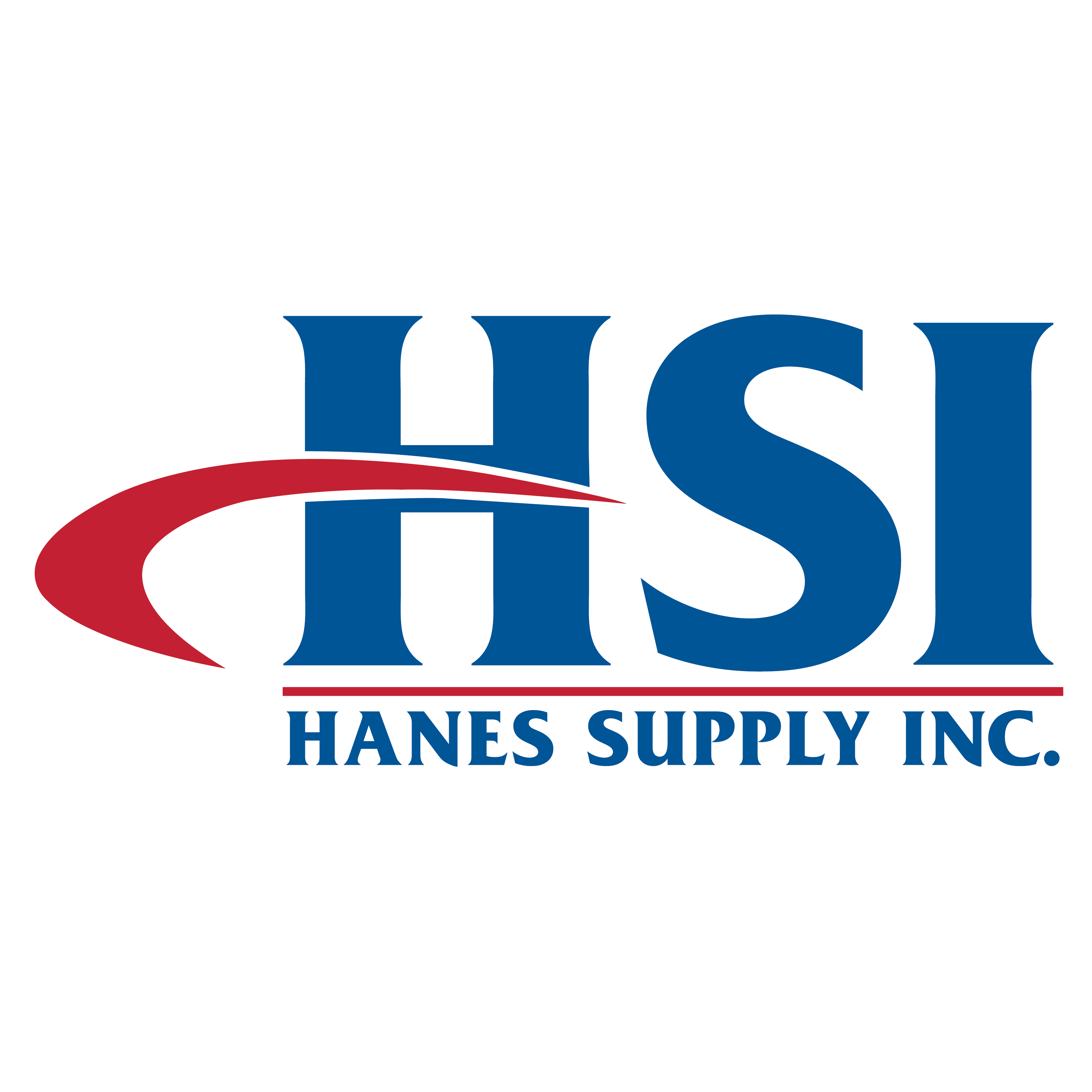


















 Channellock® 426 Tongue and Groove Plier, 7/8 in Nominal, 3/4 in L C1080 High Carbon Steel Straight Jaw, 6-1/2 in OAL
Channellock® 426 Tongue and Groove Plier, 7/8 in Nominal, 3/4 in L C1080 High Carbon Steel Straight Jaw, 6-1/2 in OAL
 Klein® D2000-9ST 2000 Heavy Duty Rebar Work Cutting Plier, 9-3/8 in OAL
Klein® D2000-9ST 2000 Heavy Duty Rebar Work Cutting Plier, 9-3/8 in OAL
 Stanley® FatMax® 33-716 Reinforced Tape Rule with BladeArmor®, 16 ft L x 1-1/4 in W Blade, Mylar® Polyester Film Blade
Stanley® FatMax® 33-716 Reinforced Tape Rule with BladeArmor®, 16 ft L x 1-1/4 in W Blade, Mylar® Polyester Film Blade
 Arrow™ HT50 Professional Heavy Duty Tomahawk Hammer Tacker, Flat Crown Staple
Arrow™ HT50 Professional Heavy Duty Tomahawk Hammer Tacker, Flat Crown Staple
 Estwing® E324S Framing Hammer, 16 in OAL, Smooth Surface, 24 oz Steel Head, Straight Claw, Steel Handle
Estwing® E324S Framing Hammer, 16 in OAL, Smooth Surface, 24 oz Steel Head, Straight Claw, Steel Handle
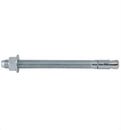 DeWALT® Power-Stud®+ Powers® 7449SD1-PWR Expansion Wedge Anchor, 3/4 in dia, 10 in OAL, 7-1/2 in L Thread, Carbon Steel, Zinc Plated
DeWALT® Power-Stud®+ Powers® 7449SD1-PWR Expansion Wedge Anchor, 3/4 in dia, 10 in OAL, 7-1/2 in L Thread, Carbon Steel, Zinc Plated
 BBI® 777037 All Threaded Rod, 3/8-16, 12 ft OAL, Steel Alloy
BBI® 777037 All Threaded Rod, 3/8-16, 12 ft OAL, Steel Alloy
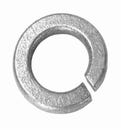 BBI® 754072 Medium Split Lock Washer, 1/2 in Nominal, 18-8 SS
BBI® 754072 Medium Split Lock Washer, 1/2 in Nominal, 18-8 SS
 Primesource® 8CTDSKR Sinker Nail, 17/64 in, 2-3/8 in L, 9 ga, Vinyl Coated, Smooth Shank
Primesource® 8CTDSKR Sinker Nail, 17/64 in, 2-3/8 in L, 9 ga, Vinyl Coated, Smooth Shank

